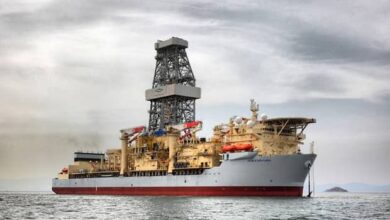Equinor announces oil and gas discovery close to North Sea Fram field
Equinor and its license partners Petoro AS and Wellesley Petroleum AS have found oil and gas in the Swisher prospect. Recoverable resources are estimated to be in the range of 2-6 million standard cu m of oil equivalent, corresponding to 13-38 million BOE.
“We are working continuously on keeping an exploration portfolio that forms the basis for high value creation and in addition can be produced with a low carbon footprint. This discovery contributes to reaching this goal,” Nick Ashton, Equinor’s Senior Vice President for Exploration in Norway, said.
Wells 35/11-24 S, 35/11-24 A and 35/11-24 B were drilled around 7 km west of the Fram field and 130 km northwest of Bergen.
The discovery demonstrates the importance of continuous learning. Based on investment in new data and exploration wells that Equinor drilled last year, the company has developed new understanding of the underground in one of the most mature and developed areas on the Norwegian continental shelf (NCS).
“This strongly indicates that it is still possible to prove new and profitable resources that can utilize existing infrastructure on the NCS,” Mr Ashton added.
The purpose of the wells was to prove petroleum in the Upper Jurassic rocks of the Heather formation.
Well 35/11-24 S encountered a hydrocarbon column totaling 42 m in sandstone layers in the Heather formation, of which 21 m interval were gas and 7 m in sandstone of mainly moderate to good reservoir quality and 21 m interval were oil and 17 m in sandstone of good to moderate reservoir quality.
Well 35/11-24 A encountered a total gas column of 25 m and up to 6 m in moderate quality sandstone in the Heather formation. Well 35/11-24 B encountered an oil column of minimum 3 m in good-quality sandstone in the Heather formation.
The wells were not formation-tested, however extensive data acquisition and sampling were carried out. All wells were concluded in the Heather formation from the Late Jurassic epoch at a depth of 3000-3600 m. Water depth in the area is 356 m. The wells have been permanently plugged and abandoned.
The licensees will evaluate the discovery for a potential tie-in to existing infrastructure in the area.
The wells were drilled by the West Hercules drilling rig, which will proceed to drill wildcat well 6407/1-8 S in the Apollonia prospect in production license 263 D in the Norwegian Sea.




